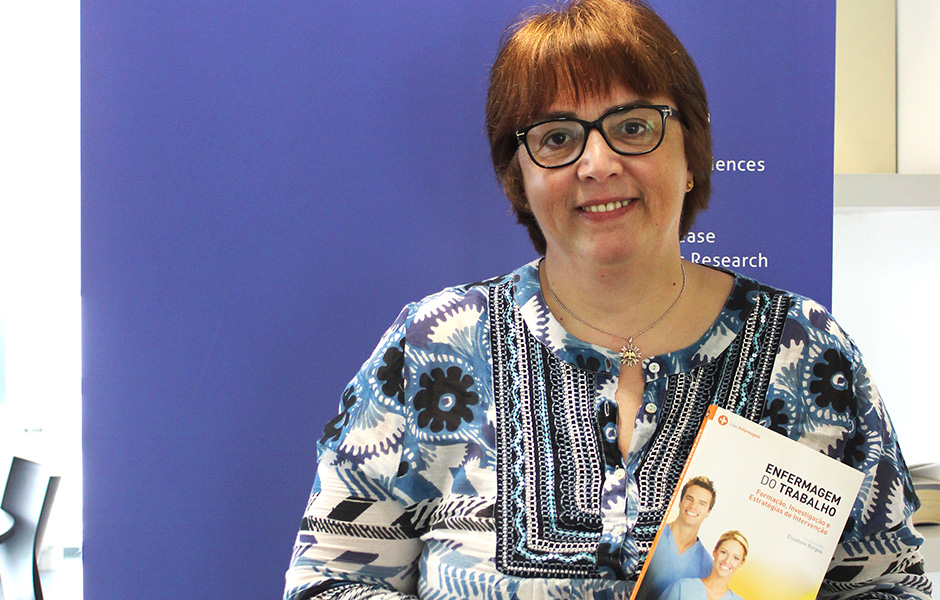“Enfermagem do Trabalho – Formação, Investigação e Estratégias de Intervenção” (‘Occupational Nursing – Training, Research and Intervention Strategies’) is the title of the book to be launched next May 16, at 7:00 p.m. at the FNAC store of the Norteshopping Center, in Matosinhos.
The book is printed by Lidel and coordinated by Elisabete Borges, researcher at CINTESIS – Center for Health Technology and Services Research. The management of the Lidel collection on Nursing is under the responsibility of Carlos Sequeira, another CINTESIS researcher.
“This is the first book in the area of Occupational Nursing in Portugal and is the culmination of a dream. It is not only for nurses, but for all health professionals and human resource managers,” explains the coordinator.
The book is authored by nurses, occupational nurses, professors, and psychologists among others professionals from Portugal, Spain and Brazil. It takes into account clinical practice and research developed in these three countries on health promotion in the workplace, communication strategies, stress prevention, burnout, bullying, biosafety and exposure to pathogens, and organization of occupational health services.
“Monitoring health is not enough; we need to emphasize the importance of health promotion in the workplace. Together with other professionals, Occupational Nursing can do much more for the health of workers. We cannot expect the workers to adopt behaviours that value their health, if they do not have the knowledge to do so,” says Elisabete Borges.
For the CINTESIS researcher, the example should come from above. “Health at work has to start with top managers. It is important that the organization understands the employees’ need to be appreciated and motivated, the prevention of work-related injuries and occupational diseases, and work-family interaction. Portugal has evolved in this matter, but there are still some significant steps missing,” she says.
Regarding education and training in Occupational Nursing, Elisabete Borges recalls that in Portugal, Occupational Nursing is not yet recognized as a specialty, although there is more and more training and research in the area.
This book was produced in collaboration with Cristina Queirós, Faculty of Psychology and Educational Sciences of the University of Porto (FPCEUP); Pilar Mosteiro, Faculty of Medicine and Health Sciences of the University of Oviedo; Patrícia Baptista, Nursing School of São Paulo; and Margarida Abreu (ESEP), researcher at CINTESIS, among others.
Elisabete Borges graduated as Occupational Nurse in 1998 and is an integrated member of the research group NursID, at CINTESIS. She worked at the Maria Pia Hospital and at the Joaquim Urbano Hospital. She is a specialist in Community Nursing, a Master in Philosophy and a Doctorate in Nursing. She is an assistant professor at the Nursing School of Porto (ESEP), and since 2013 she coordinates the project “INT-SO: From workplace contexts to occupational health of Nursing professionals, a comparative study among Portugal, Brazil and Spain”, which has already a database with near 3500 participants and extensive work in the area.

